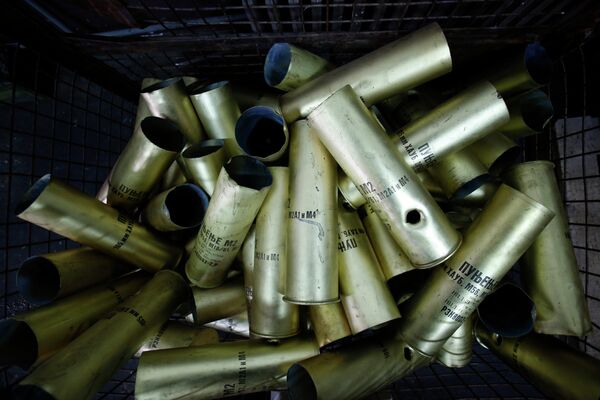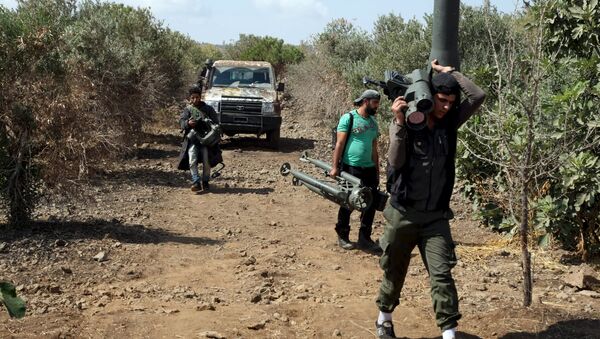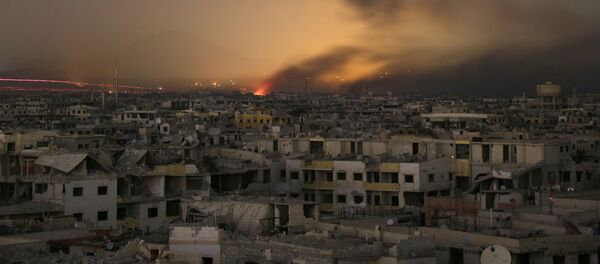Sputnik: Does the fact that the US has extended its lead in global arms over the past five years come as a surprise to you?
Siemon Wezeman: I think the main significance of the whole picture, the global picture is that the world isn't safe and hasn't become safer, arms are still needed by countries, countries are still willing to sell weapons, so that should be of some concern and when you look at the Middle East where the arms imports have doubled in the last five years compared to the previous five years you need to have some serious concerns about the situation there. There are major conflicts going on there, there are major tensions going on there and countries are very willing to supply the weapons for those conflicts and tensions.
Sputnik: What is the primary way that weapons’ circulation is controlled?

Siemon Wezeman: That’s one of the other issues, when you sell weapons to a country you have to be sure that the weapons stay in safe hands and that doesn't always happen. In the Middle East where weak regimes have collapsed so that all kinds of groups that you don't want to have those weapons, terrorist groups, rebel groups any other groups, can get their hands on weapons. Governments that are in weak positions lose those weapons and that's of course something you don't want, sometimes it's very difficult to forsee, but many of the Middle Eastern countries everybody understands that they are not terribly strong, their position has always been a bit weak, so supplying weapons again to a regime that you know is maybe a bit weak and could collapse is in itself a danger.
Sputnik: To what extent can you say that the arms that were sent to governments end up in the hands of dangerous or terrorist extremist organizations?
Siemon Wezeman: That’s one of the other issues, when you sell weapons to a country you have to be sure that the weapons stay in safe hands and that doesn't always happen. In the Middle East where weak regimes have collapsed so that all kinds of groups that you don't want to have those weapons, terrorist groups, rebel groups any other groups, can get their hands on weapons. Governments that are in weak positions lose those weapons and that's of course something you don't want, sometimes it's very difficult to forsee, but many of the Middle Eastern countries everybody understands that they are not terribly strong, their position has always been a bit weak, so supplying weapons again to a regime that you know is maybe a bit weak and could collapse is in itself a danger.
Sputnik: Europe and the US have been calling on the restriction of arms sales in the Middle East and yet the US is the main arms exporter to the region, how do you explain that?
Sputnik: When we talk about countries like Yemen and Syria for that matter, the influx of imported arms is obviously having a huge impact on escalating the conflicts in the region or fueling the conflicts, what are your thoughts on that?
Siemon Wezeman: Most countries in the Middle East are not weapons producers so they depend on imports and supplying them weapons clearly leads to tension, leads in this case to conflict, weapons are actually being used in conflict. It's something that when the tensions, especially the big tensions between countries, Saudi Arabia on the one hand and its allies and on the other hand Iran, is one of those set of tensions, and they are extremely important of very high concern because before you know it there's a major conflict there, so you have to think what are we actually doing there supplying all these weapons and if you look 25 years ago they were thinking the same at the end of the Gulf War and the invasion of Kuwait, they were thinking exactly the same, this is in the region full of tensions and potential conflicts and lot's of weapons are going there, we should think what we're doing and history doesn't always teach the proper lesson, apparently.
The views and opinions expressed in this article are those of the speakers and do not necessarily reflect those of Sputnik.



